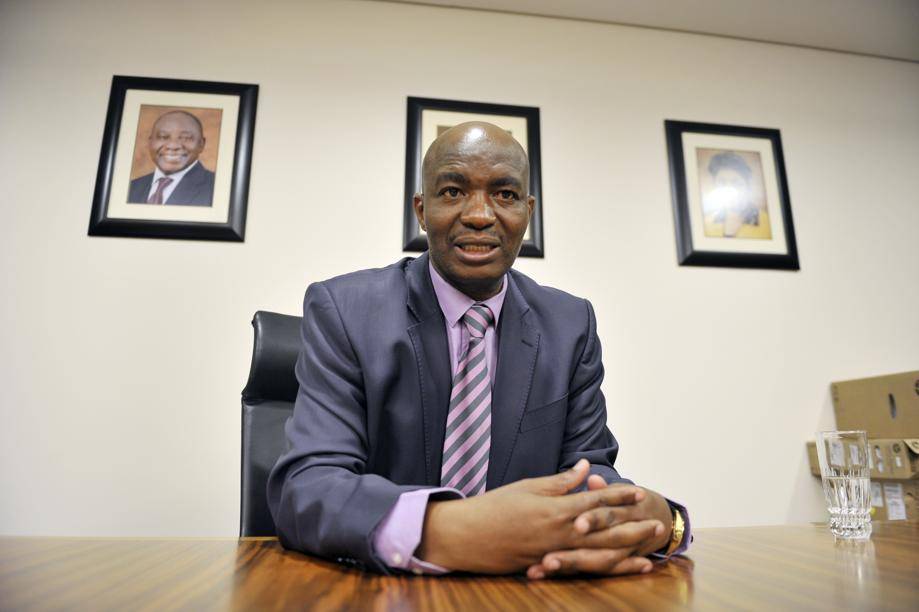
Schools have been urged by the Department of Basic Education director-general Mathanzima Mweli to design plans to deal with the Covid-19 coronavirus.
On Wednesday Mweli issued a circular with guidelines to provinces, union and school governing bodies which said the plans would minimise disruption to teaching and learning while protecting pupils and staff from the social stigma and discrimination.
These plans, he said, could be built on everyday practices such as encouraging hand hygiene, monitoring absenteeism and communicating routinely.
“Schools can play an important role in efforts to control the spread of Covid-19,” Mweli said.
He added that schools “can take steps to circulate information about the disease and its potential transmission within their school community, prepare steps to prevent the spread of Covid-19 among their pupils and staff should health officials identify such a need”.
Mweli said this was an “interim guidance intended to help administrators of childcare facilities, primary and high schools prevent the spread of Covid-19 among pupils and staff”.
He said the guidelines would be updated as new information emerged and urged stakeholders to check the National Institute for Communicable Diseases website (www.nicd.ac.za) for updates.
To prepare for possible community transmission of Covid-19, Mweli said the most important thing for schools to do now was to plan and prepare.
“As the global outbreak evolves, schools should prepare for the possibility of community-level outbreaks as well as possible recommendations from health officials for pupils, staff or whole classes or grades to be quarantined at home,” he said.
He said school closures could be recommended in certain circumstances and that “decisions about appropriate public health interventions should always be made in discussion with public health officials who have access to all the relevant information”.
These decisions include:
- Whether pupils or teachers should remain home from school for some time; and
- Whether pupils in sections of a school or a whole school should be sent home.
“Keeping pupils at home from school or closing schools is a serious decision which may restrict the pupils’ ability to acquire education as well as have knock-on effects in terms of the need for childcare. All decisions for pupils to stay at home based on possible exposure to or infection with the Covid-19 should be justified by available scientific evidence. Schools want to be ready if Covid-19 does appear in their communities.
“School administrators can take steps to help stop or slow down the spread of respiratory infectious diseases, including Covid-19,” Mweli said.
. Making sure that everyone in the school has up to date information on how to prevent the spread of Covid-19 (link to NICD, www.nicd.ac.za, guidance on hand-washing and other guidelines);
. Monitoring and planning for absenteeism;
. Establishing procedures for pupils and staff who are sick at school; and
. Creating communication plans for use with the school community.
About pupils who plan to travel, or have recently travelled to areas affected by Covid-19, Mweli said the country has not implemented any travel restrictions.
“If members of school communities become infected during travel, they could potentially introduce Covid-19 into the community on return. The NICD has developed guidance on quarantine, including guidance on appropriate precautions to take when returning from travel in affected countries and these should be followed (www.nicd.ac.za).”
In light of this, Mweli said staff and pupils who will be travelling overseas, including on school tours, in the next few months should reconsider the benefits and risks of undertaking such trips.
“Schools may need to postpone or cancel trips that could expose pupils and staff to potential community spread of Covid-19. Schools can also consult with local health officials or call the NICD community hotline to discuss travel concerns 0800 029 999.”
For pupils who may have been exposed to suspected cases of Covid-19, Mweli said no restrictions or special control measures are required while laboratory test results for Covid-19 are awaited.
“There is no need to close the setting or send other pupils or staff home. As a precautionary measure, the NICD is currently testing a very large number of people who have travelled back from affected countries, the vast majority of whom test negative. Therefore, until the outcome of test results is known there is no action that staff members need to take.
“Pupils who may have been exposed to a confirmed case of Covid-19 and all close contacts of a confirmed Covid-19 case are required to self-quarantine at home for 14 days while being monitored for symptoms. They may not attend school.
“Specifically, pupils who have interacted with a healthy contact of a confirmed case should not be excluded from school. The reason for this is that the asymptomatic spread of Covid-19, if it occurs, is likely very uncommon,” Mweli said.
Mweli said action to be taken when a case of Covid-19 in a pupil or staff is confirmed, include:
- That the childcare or educational institution will be contacted by the relevant public health officials to discuss the case, identify people who have been in contact with them and advise on any actions or precautions that should be taken. If you have not yet been contacted please contact the public hotline 0800 029 999 who will refer you to the relevant contact;
- An assessment of each institution will be undertaken by the public health officials with relevant staff; and
- If there is a confirmed case, a risk assessment will be undertaken by the educational establishment with advice from the public health officials. “In most cases, closure of the facility or school will be unnecessary. This decision will be facility or school specific, based on various factors such as establishment size and pupil mixing.”
- Schools will have to prepare for possible school closure. “This should only be considered following recommendations from a public health official. Schools can seek specific guidance from the health officials to determine if, when, and for how long to take these steps. Large event cancellations or school closures may be recommended for 14 days, or possibly longer if advised by local health officials.”
During school closure, Mweli said childcare programmes and schools may stay open for staff members, unless ill, while pupils stay home.
“Keeping facilities open will allow teachers to develop and deliver lessons and materials remotely, thus maintaining continuity of teaching and learning,” he said.
- Temporarily cancel extracurricular group activities and large events – such as field trips and sporting events.”
- Discourage pupils and staff from gathering or socialising anywhere.
- Ensure continuity of education by reviewing continuity plans, including plans for the continuity of teaching and learning. Implement e-learning plans, including digital and distance learning options as feasible and appropriate.
- Ensure continuity of meal programmes, if applicable, by considering ways to distribute food to pupils through government’s national feeding scheme. “If there is community spread of Covid-19, design strategies to avoid distribution in settings where people might gather in a group or crowd. Consider options such as “grab-and-go” bagged lunches or meal delivery.”
Mweli also detailed how to clean educational establishments where there were pupils, staff or others with suspected or confirmed cases of Covid-19.
He said Covid-19 symptoms are similar to those of flu and include cough, fever, or shortness of breath.
“Once symptomatic, all surfaces that the suspected case has come into contact with must be cleaned using disposable cloths and household detergents.”
With regard to what to do with rubbish in the educational institution – including tissues, if pupils, staff or others become unwell with suspected Covid-19, he said these should be put in a plastic rubbish bag and tied when full.
The plastic bag should then be placed in a second bin bag and tied. It can then be put in the normal waste.
“Schools, working together with local health departments, have an important role in slowing the spread of diseases to help ensure learners have safe and healthy learning environments,” Mweli said.
“It is imperative that school communities are aware of the basic health and safety precautions as mentioned throughout the circular. This circular must be implemented immediately within all schools and applies to all entities and individuals within the school premises. Provincial education departments are obliged to ensure compliance as well as that resources are made available to secure schools and protect the health of school communities,” he said.




 Publications
Publications
 Partners
Partners









